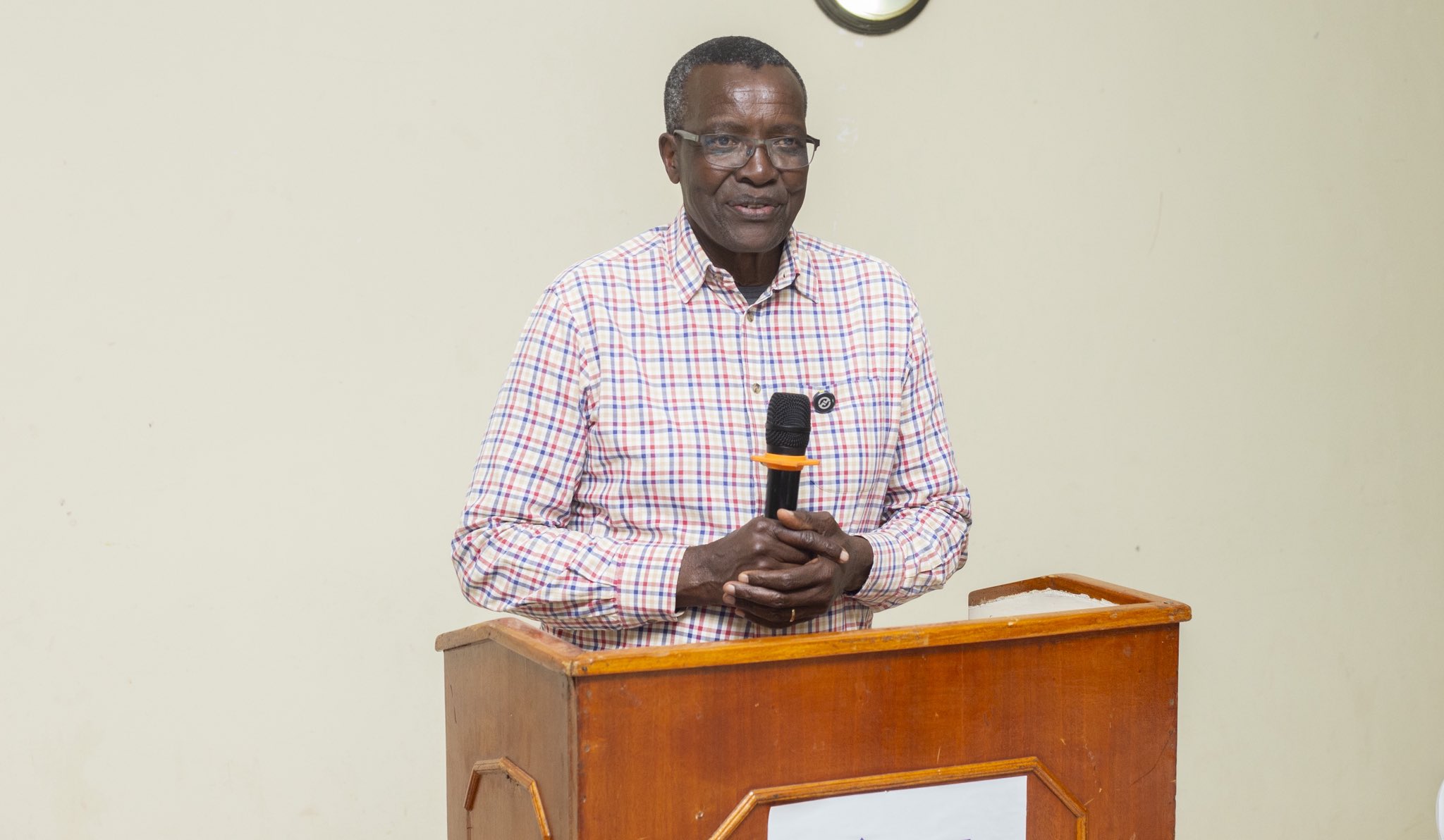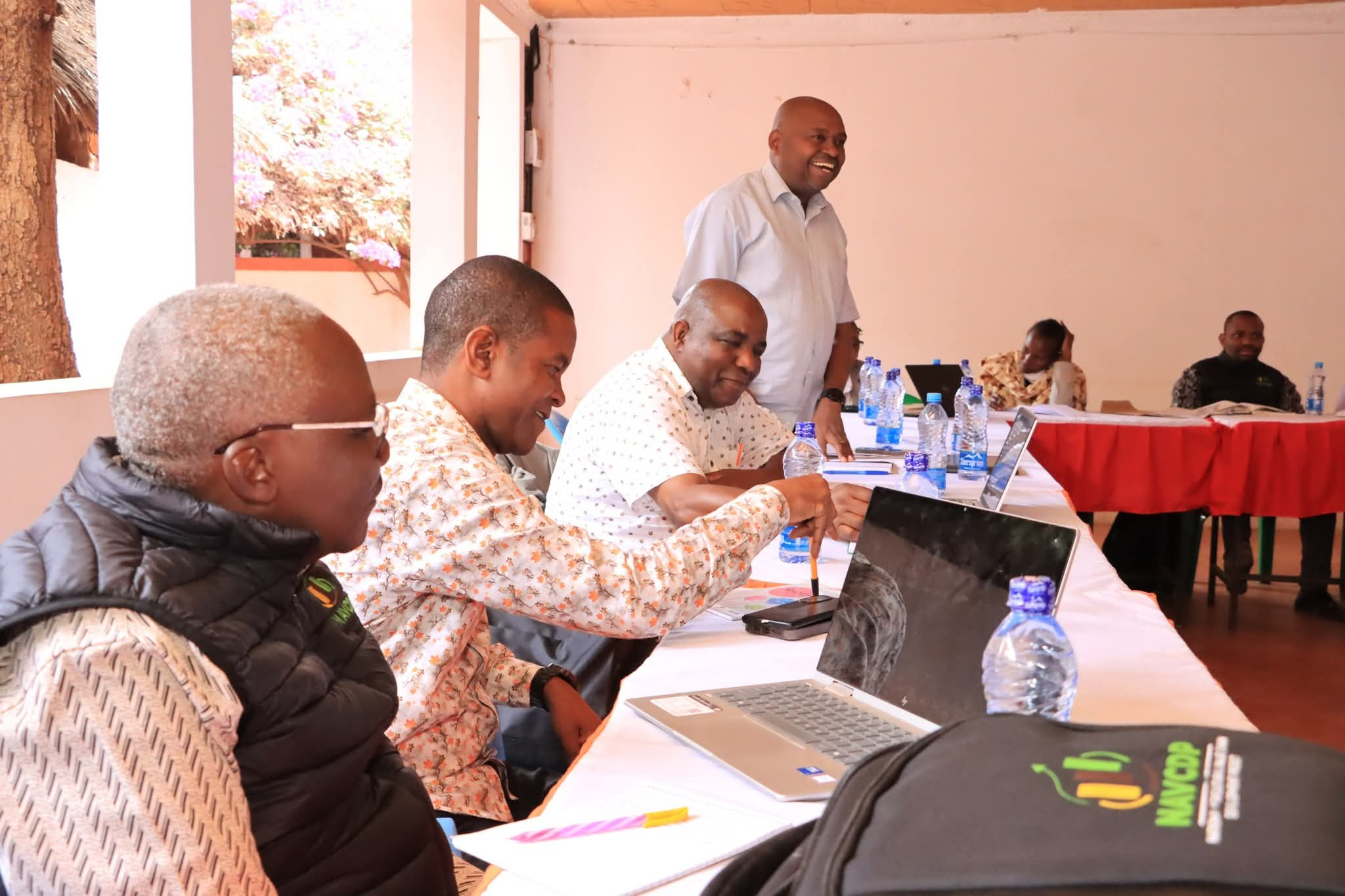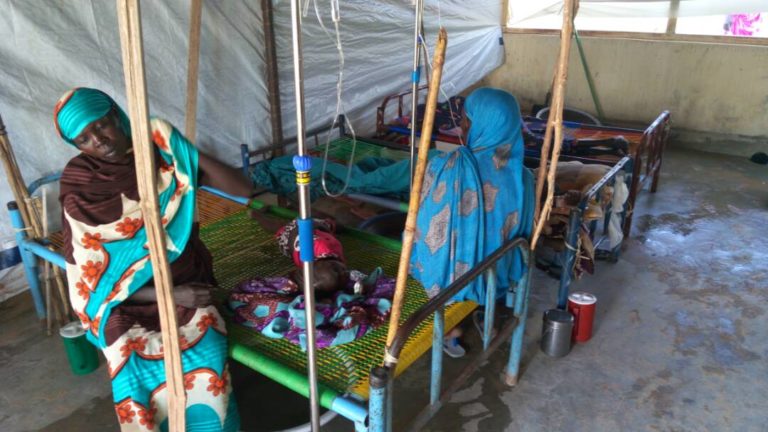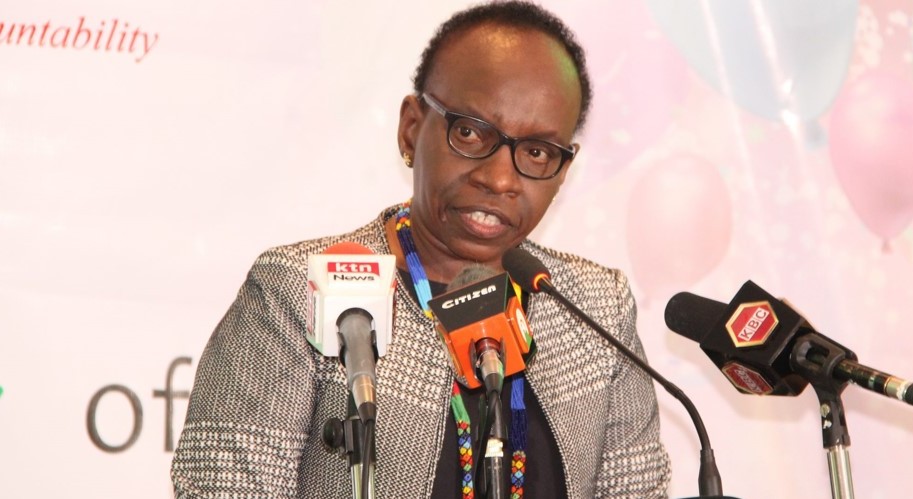From banditry to books: How student admissions in North Rift are increasing as guns remain silent
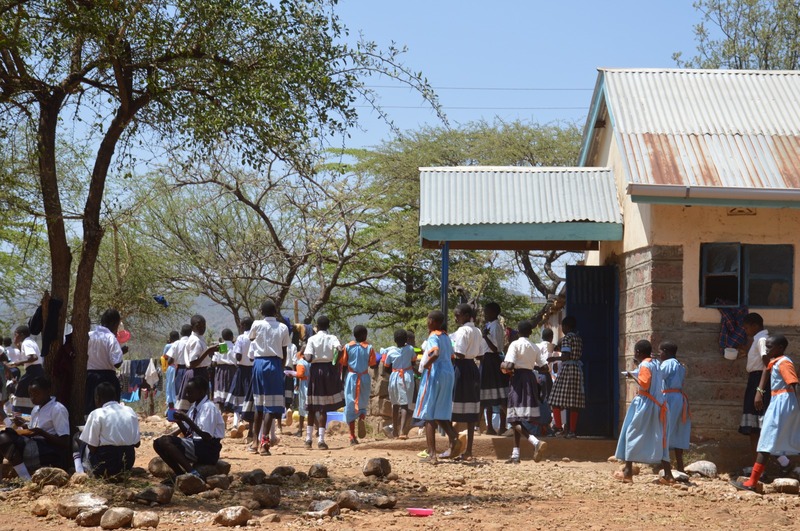
Unlike many schools across the country with a single motto displayed on the walls of their main gates, Cheptulel Boys High School in West Pokot County boasts two: its motto, "Rise and Excel", and a peace slogan, "The Peacemaker".
James Koitilo, the Principal, explains as we settle for an interview in his office that the founders coined the phrase years ago to symbolise the community's yearning for an institution that would serve as a point of interaction for children from the neighbouring communities of Elgeyo Marakwet and Baringo counties, following decades of inter-communal conflict fuelled by banditry and cattle rustling.
More To Read
- Government to build seven police stations in Tiaty, Baringo in bid to curb banditry
- Murkomen appoints new principal secretaries, regional commissioners
- Murkomen orders bandits to surrender guns or face forceful disarmament
- Murkomen warns chiefs, police over collusion in North Rift alcohol crackdown
- KDF introduces controlled meal payments to curb loan collateral use
- Firearm smugglers from Uganda to Kenya mapped, arrests imminent, says Interior CS Murkomen
"The founders of this school believed that establishing an institution here would not only boost education but also foster positive inter-community relations. They envisioned Cheptulel Boys as a place where students from Elgeyo Marakwet, West Pokot, Baringo, and other regions could mingle, which would, in turn, encourage parents to interact and promote peace," says the principal, who was posted to the school last year.
Located along the Kerio Valley, at the border between Elgeyo Marakwet and West Pokot, the school had been one of the most affected by banditry and cattle rustling in the North Rift Region for decades. The situation deteriorated in 2022 following an upsurge in attacks that left a trail of destruction in its infrastructure.
As a result, parents were forced to withdraw 320 of their sons from the school, leaving behind a meagre population of 30 students. These students were relocated to the neighbouring Nyang’aita Boys, where they stayed for a year, but due to limited space, they were moved again to Surumben Primary School. They remained there until January 23, 2025, when 70 students returned to their original school.
Teachers also sought transfers, leaving behind a hollow institution that, for three years, failed to live up to its mission and nearly became a playground for bandits who shattered classrooms' windowpanes.
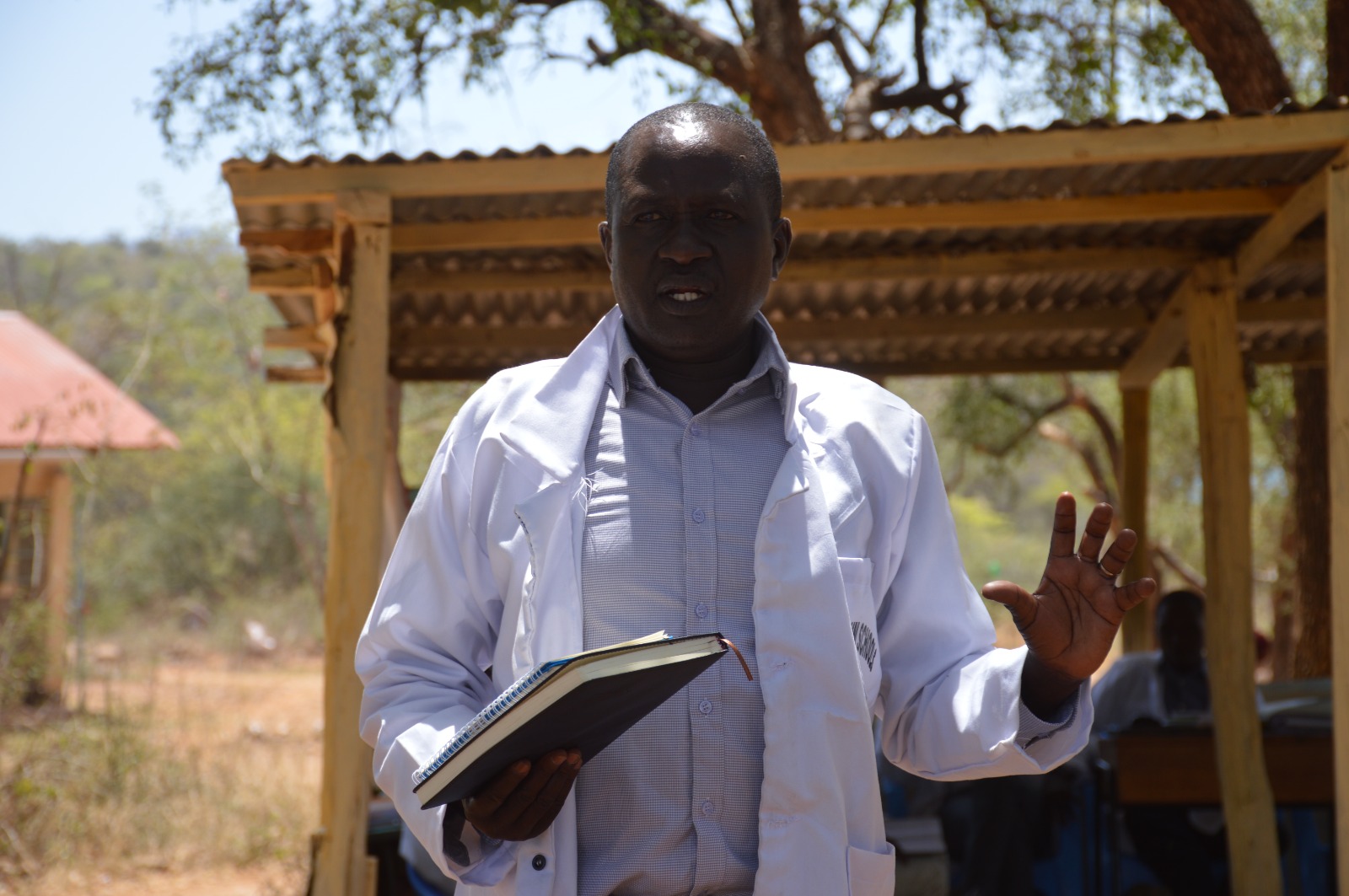 Elijah Kipton, the Headteacher of Kapindasun Primary School who earlier won a state recommendation for his resilience in teaching in insecurity-prone Baringo South. (Mary Wambui, EV)
Elijah Kipton, the Headteacher of Kapindasun Primary School who earlier won a state recommendation for his resilience in teaching in insecurity-prone Baringo South. (Mary Wambui, EV)
Over time, the abandoned school turned into a looters' paradise, with thieves taking whatever they could, as if in competition with the termites that feasted on the roof trusses, leaving the roofing weak and the interiors uninhabitable.
It was here that the late Chief of Defence Forces, General Francis Ogolla, launched the school's rehabilitation works on April 18, last year.
Less than a year later, the renovations have been completed, and students have resumed learning under the keen watch of Kenya Defence Forces (KDF) personnel, who have set up camp at the school. They provide not only security but also maintain regular patrols to ensure the seamless movement of supplies to the school. The principal notes that the guns have now fallen silent.
"When the President directed KDF to renovate this school, we saw extensive improvements. Classrooms, dormitories, and the laboratory were repaired, the termite-damaged roofing was restored, and collapsed toilets were rebuilt, with three additional ones constructed. KDF also built a kitchen, replacing the makeshift one we used to have," he explains.
Though KDF's primary role was renovation, their presence has significantly contributed to the prevailing peace, deterring bandits from roaming freely and engaging in violent crimes, including livestock theft and murder.
"I believe they have also helped curb the movement of illegal firearms in this area," adds the principal, who urges the government to retain KDF’s presence, either within the school or by setting up a patrol base nearby.
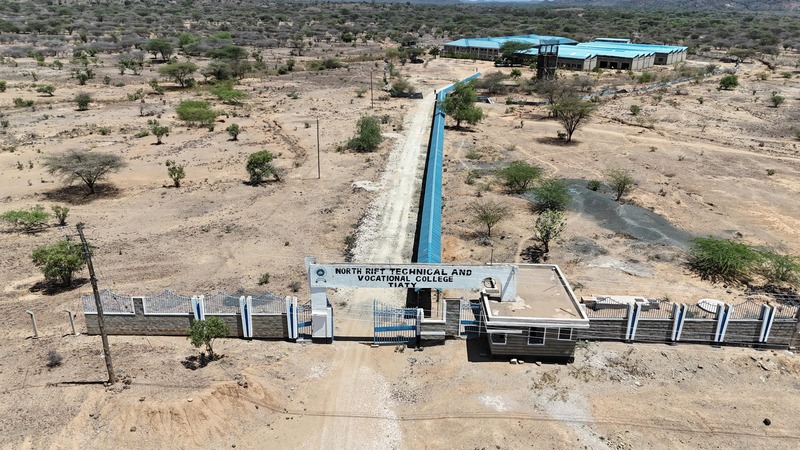 The aerial views of North Rift Technical and Vocational College on February 19, 2025. (KDF)
The aerial views of North Rift Technical and Vocational College on February 19, 2025. (KDF)
Growing student population
The institution now boasts a growing population of 102 students, thanks to the prevailing peace and community initiatives led by local churches and peace committees, encouraging parents to return their children to school.
"The area is currently calm, and there is peace, but the larger community remains sceptical. Many are yet to accept that peace has truly been restored, but we remain hopeful. Security officials, including the County Commissioner and the Deputy County Commissioner, have assured us that six National Police Reservists (NPRs) will be assigned to guard the school. We already have two. They have also promised to set up an NPR camp outside the school to conduct surveillance and prevent criminal elements from operating in the area," says the principal.
Elijah Aywali, a local and former parent at the school who now works as non-teaching staff, is among those who have returned.
"I left for Lomut but came back after peace was restored. However, some parents who left with their children are yet to return due to fear. Once security is fully restored, I am certain they will have the confidence to come back," he says.
Aywali notes that isolated criminal activities—such as a recent incident where a woman was stabbed with an arrow while clearing her land for planting—continue to slow the return of displaced families.
"People are willing to return home because they see peace. However, a single incident of crime reignites their fears," he explains.
While private vehicles and lorries transporting supplies to the Chesogon shopping centre have resumed operations, PSV matatus and boda bodas have yet to restore normal transport services to the school.
"We usually collect our students from Lomut and bring them by bus. Once they arrive, we do not send them back because their safety is not guaranteed. However, inside the school, we feel very secure. If a student falls ill, we make arrangements with NPR officers to escort us to Alporo, from where the student can board a motorbike to Lomut. At times, we request the Anti-Stock Theft Unit (ASTU) to help transport food supplies," he adds.
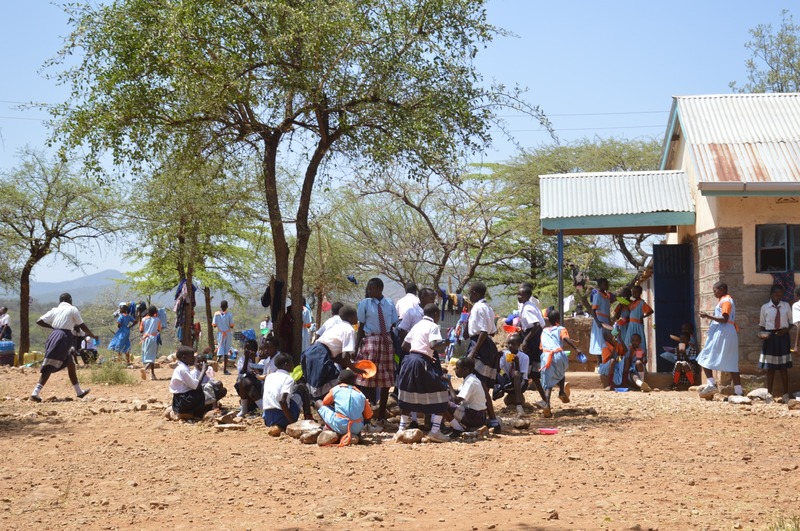 Pupils from Arabal Pry and Embossos Secondary interact during lunch break. (Photo: Mary Wambui)
Pupils from Arabal Pry and Embossos Secondary interact during lunch break. (Photo: Mary Wambui)
Restoring education and peace
At Lomelo Comprehensive School in Turkana County, Lokir Cheposokes, a parent, applauds the integration of children from different communities, including Pokot, Tugen, Turkana, Njemps, and Maasai.
"They eat at school, learn, and live in peace—which is what we all yearn for. Peace is sweet, and education is good," she says.
"Last year, the school enrolled only Turkana pupils, with a population of 120. However, with the prevailing peace, we have started admitting Pokot pupils, and we are still welcoming more as our population has grown to 160," says Headteacher Joseph Echipon.
His biggest challenge remains the long distances some children must cover—some walking up to 10 kilometres to attend school. "I urge the government to establish boarding facilities to accommodate such pupils."
In Baringo South Sub-County, students from Embossos Secondary School are currently hosted at Arabal Comprehensive School due to vandalism at their original school, which lacks power and requires extensive renovations before students can return.
"The security situation has greatly improved, as seen in the increasing number of students enrolling. However, this has led to congestion due to limited facilities," says Principal Joseph Koima.
Despite these challenges, schools in conflict-prone areas are seeing a resurgence, with students from various ethnic backgrounds now coexisting peacefully.
At Kapindasun Primary School, which reopened in January 2023 after being closed in 2019, learners from Laikipia, Nakuru, Elgeyo Marakwet, and Baringo counties are now enrolled. Over 500 pupils currently attend the school, though early childhood and lower primary classes remain underpopulated as many families have relocated.
"When peace returned, I decided that all teachers should wear white dust coats in school as a symbol of peace," says Headteacher Elijah Kipton, who was recently awarded a state commendation for his resilience.
 Students at North Rift Technical and Vocational College on February 19, 2025. (Photo: Mary Wambui, EV)
Students at North Rift Technical and Vocational College on February 19, 2025. (Photo: Mary Wambui, EV)
Higher learning institutions are also thriving. Chemolingot KMTC Campus, established in 2021, has grown from 24 students to 112, with an additional 150 admissions expected in March.
"We have students from across the country—Kilifi, Mombasa, Homa Bay, Lodwar, Nyeri—demystifying the myth that Tiaty is insecure," says Principal Timothy Kiptoo.
At North Rift Technical and Vocational College, over 670 students—mainly from Western Kenya, the Coast, Central Kenya, and Nairobi—are benefiting from free accommodation, market-driven courses, and scholarship opportunities.
With continued peace and support, these institutions are becoming beacons of hope, education, and inter-community harmony in the region.
Top Stories Today








